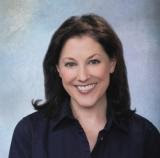Writing Tips from Children’s Author Sherrie Madia

Welcome to day four of Sherrie Madia’s 6-day NWFCC March Author Showcase tour and climb into the all important content or meat of an effective story.
For anyone interested in writing a children’s book, know that it all starts with content. When I begin to write, the ideas simply pour out. Some days, I can’t write them down fast enough. But then, I stop to consider, “How might this contribute to children’s literature?” It’s important for any author to ask basic questions such as, “How does this book fill an existing void? What is it similar to in terms of what’s out there? How is it different?”
Once you have worked on a draft, fine tuned, stepped away, tried the story out on family and friends, edited your work, and repeated the process, you’ll then want to gather an actual target audience. Your local elementary or preschool might be the best place to start. Ask the principal if you might share your story and if he or she might be willing to let you read it to a pre-Kindergarten or Kindergarten class. Only then will you learn what no one else but your audience can tell you about elements in the work that must be turned up, turned down, or taken out.
This process, too, will supercharge you toward producing a stellar work. Ultimately, the secret ingredient to any successful children’s book is you must understand your audience, and you must genuinely care about how they will react, what they will experience, and the nuances that will engage and captivate young minds. I have worked with authors who are writing for the wrong reasons—thinking they will make a quick profit, or not stopping to care about the audience. These authors tend to get only so far.
Those authors who care about their craft, care about the end user, and when it comes to writing for children, this is a powerful statement, because we have the ability to foster creativity, and engage young minds in thinking through what little they know of the world. And as anyone who has ever enjoyed a favorite story as a child can attest to, these stories can shape the lens through which we begin to see the world.
Writing for children is both an honor and a privilege, and if you’re fortunate enough to be an author whose stories children want to read, consider that you’ve played your own small part in changing the world.
Follow Day 5 of Ms. Madia's tour tomorrow at www.nancyisanders.wordpress.com. Leave a comment and your name will automatically be entered to win a Three Angels Gourmet Co mug and a package of Divine Dill Dip Mix - at the end of the month, provided by the National Writing for Children Center.

Comments
It was nice to see them eager to read something I had written.
Best of luck,
Cheryl
Terrific tips. Luring the reader in is key and keeping their attention with well thought out writing is essential.
Best wishes,
Donna
Margot's Magic Carpet - all my books on one page.
http://perfectmagiccarpet.blogspot.com/